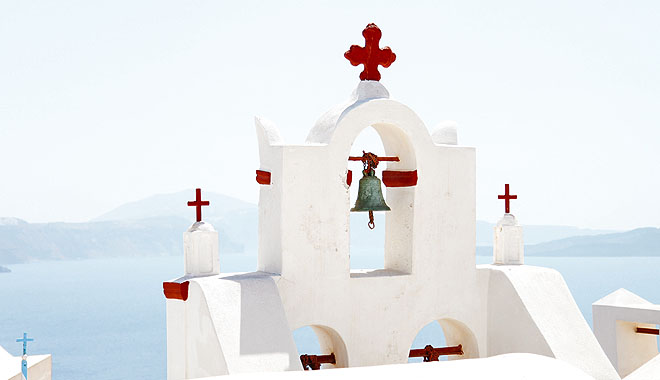Freedom’s one thing, autonomy’s another: God is the core of our existence
27 November 2015The role of the human race as a link between creation and God is clear. People are the means through which God reveals His mystery to the world. The redefinition of our attitude towards the environment is based on the understanding that it’s not merely the fact of our common provenance which binds all people closely together, as a family, but also our common destination.
Anastasios Yannoulatos [Archbishop of Albania] reminds us that ‘the aim of our existence is to activate, by God’s Grace, our God-given potential and to strive towards His ‘likeness’, to ascend from mere biological existence into a genuine communion of people, in harmony with all creatures and the whole of creation, with selfless love, in accordance with the model of existence of the Holy Trinity, the sublime ‘communion of love’.
But can we strive towards the ‘likeness’ without sacrifice and without self-denial? Of course not. It’s a mistake for us to confuse autonomy with the freedom which has been given to us by God. Our freedom has to do with ‘self-rule’ which is a gift from above. The Creator has fixed the laws of creation and the continued existence of the world. Since we have self-rule, we’re free to accept these or not. And since ‘God is love’ (Jn. 4, 16), we are also called upon to become love – or not. Love is not merely emotionalism, however. It’s the rejection of evil and affirmation of good. It’s sacrifice and self-denial. The express denial we gave to the question above leaves no room for doubt. This is something we’re taught through the Orthodox ethos.
From the first moment of our creation as people, we were created as being free in God, not in ourselves. Preservation of the ‘likeness’ involves the rejection of the acceptance of our individual self as a reality essentially different from and independent of our divine model. To succeed in the process of withdrawal from dependence on ourselves, we must practice continuous self-denial, through which we will be able to understand that the core of our existence doesn’t lie with us, but in God.
The position of this article is that the study and knowledge of nature, and our reconciliation with its presence and functions, may contribute as a rung, as a step, in our battle towards glorification. The Orthodox ethos, as emulation of the way of life of Christ, teaches us how we should proceed in this struggle. We should point out also that when we speak of study and knowledge of nature, we don’t mean a specialized scientific study that very few would be able to carry out. We’re referring to the knowledge that anyone with a clear mind and sound way of thinking can acquire, so that they can become aware of the presence of God throughout nature and in all the laws and mechanisms which permeate the universe.
Even though it’s not our intention to present distinctions between Theology and Ecology, it’s worth making the point that ‘the only science of nature that’s worth the name is that which allows us to grasp the reality of the divine presence, of which every perceptible form is an expression’.
With this knowledge ‘we’ll realize how the blossoming of every flower is a form of divine resurrection’. With this knowledge, when we gaze at the starry night, observe the flight of a butterfly, listen to the song of a bird, we’ll praise and thank the Creator. In this way we can readily understand the view that Orthodox Christians who love the environment are satisfied with very little, with the necessities. They believe in the majesty of the Creator. They hope in the sustainability of the Earth, in the abundance of the fruits of the earth, and they hope to see ‘the New Heaven and the New Earth’ (Rev. 1-5). Love towards God the Creator excels and surpasses all else.
Saint Paul’s words: ‘The whole of creation has been groaning and in travail’ (Rom. 8, 22), refer to the afflictions being suffered by creation. But these vicissitudes have been caused by our inability to preserve our spiritual integrity. The cosmic harmony in which creation was formed has been shaken because of us, from the moment when the divine image we bear within us was marred. We must seek this image and win it back. Then we may be certain that, guided by the Holy Spirit, we shall make a supreme contribution to the resolution of the ecological problem. The most important thing we have to do is to understand the ontological core of our existence.







